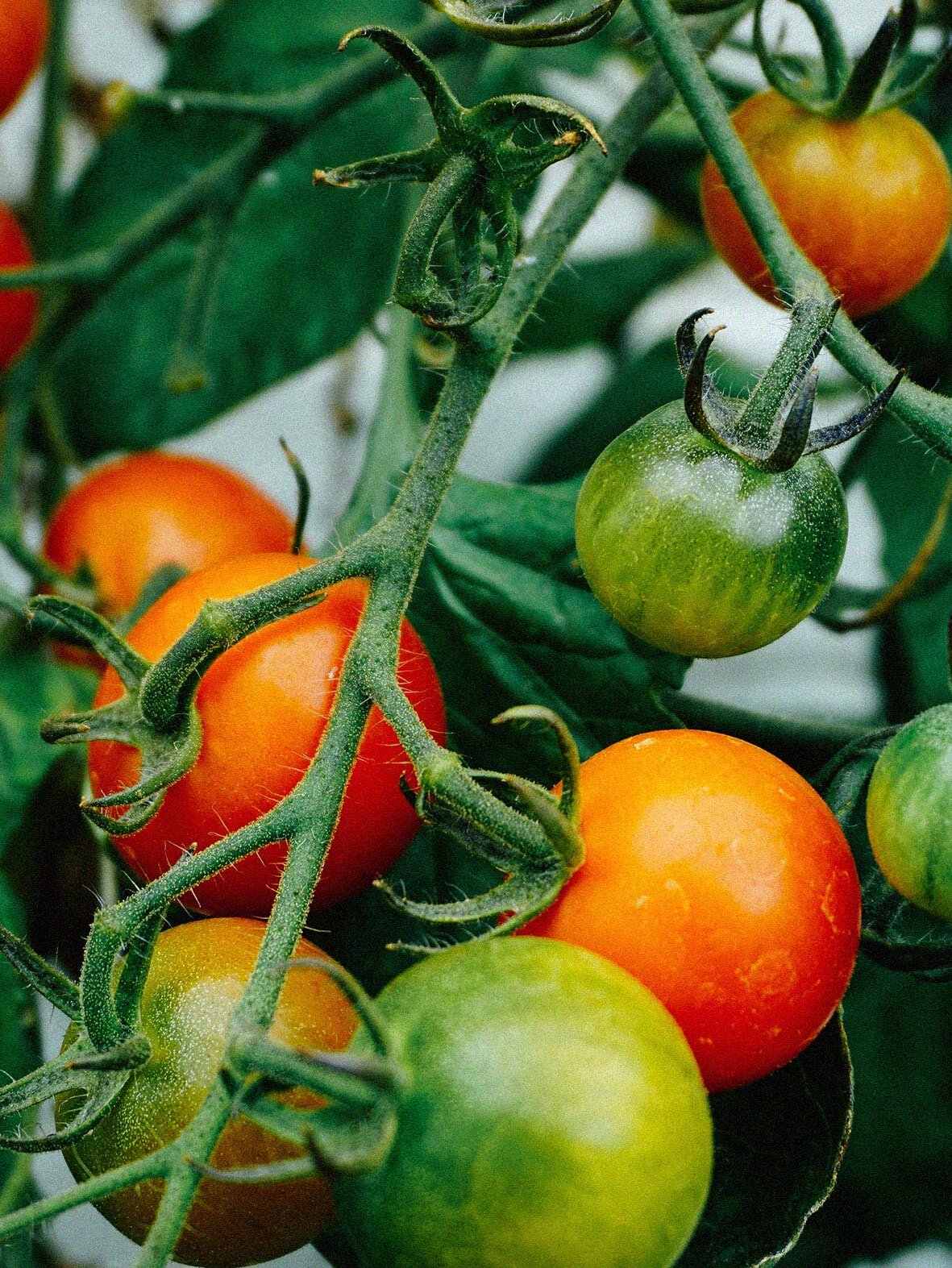Changemaker Meeting | January
On January 28th at 13:30 GMT our Changemaker community gathered once more and held a community discussion around the EcoResolution topic, Food & Farming. With a focus on Regenerative Agriculture, we reflect more generally on what regeneration means. What does it mean to regenerate land? How can we be regenerative in our daily lives? We were honoured to be joined by A Regenerar! (Let’s Regenerate!), a passionate trio who share with us their journey from city-living, working in retail and marketing, to working with the land and regenerating ecosystems, societies, and individuals. Following a conversation, we close with a breathwork practice led by Octavia Calthorpe. Scroll down to watch recordings from the meeting, and to read more about our topic, our guests, and a list of learning resources.
What are your reflections on this meeting? Start a discussion, share resources, or let us know how this meeting relates to your work and visions over on our Mighty Networks: your community platform.
Head to Upcoming Meetings to sign-up for our next gathering.
Regeneration with A Regenerar! / Let’s Regenerate!
Meet A Regenerar!
A Regenerar, or Let’s Regenerate, promote natural, social and economic regeneration through Regenerative Agriculture. Following concern about the future of the planet, this trio are spreading inspiration and information about the regenerative practices that are being carried out in Alvelal territory, Spain, and bringing this regenerative energy and liveliness to all of their projects and educational content.
You can find A Regenerar on Instagram, TikTok, Facebook and YouTube, where they share updates, videos, restoration information, and their enthusiastic team out on the land.
On their YouTube channel you can find clips from the documentary film they recommend: Cabeza, corazón y manos (Head, Heart and Hands).
Camp Altiplano
Camp Altiplano is located in La Junquera, a tiny farming settlement in the remote steppe of the Murcia region. It is a sparse, degraded yet beautiful landscape, with high heat in summer and frosty cold in winter. With only 250 mm (on average) of rain per year, this is a semi arid place, on its way to becoming a desert if action to revive this landscape isn’t taken.
Camp Altiplano is an Ecosystem Restoration Camp that you can visit for their restoration experience.
Breathwork Practice with Octavia Calthorpe
Meet Octavia
Octavia Calthorpe is a breathwork therapist based in London. Since 2017 she has trained in America, the UK and Ireland in various modalities of breathwork. Using simple, effective and accessible avenues for people to unearth the multitude of benefits of breathwork. She spends her days teaching her clients to reconnect to the power of their breath, to help relieve emotional issues, improve physical health and connect more deeply to their inner wisdom and the beautiful world we live in.
“I want to help people connect back to the superpower they have inside - their breath, and in doing so connect back to themselves and to our beautiful planet.”
What is breathwork and how does it benefit the mind, body & spirit?
Breathing is something that we take for granted - we breathe over 20,000 times a day. Yet each breath has the ability to change the way we are feeling at any given moment. Breathing is the only system in our body that is automatic and something we can consciously control. It’ s one of the simplest, yet most effective tools for transforming our mental, physical and emotional health.
Discover more about Octavia and her Breathwork here.
What do we mean when we talk about Regeneration?
What do we mean when we talk about regeneration? “Regeneration is an ambiguous term with diverse meanings. According to the Oxford English Dictionary, to be regenerated is to be ‘re-born; brought again into existence; formed anew’. Another meaning the OED suggests is ‘restored to a better state’.” (Nature)
In biology, regeneration is the process of renewal, restoration, and tissue growth that makes cells, organisms, and ecosystems resilient to changes or events that cause disturbance or damage. Every species is capable of regeneration, from bacteria to humans.
Across definitions and applications of the term ‘regeneration’, there is a sense of both looking at what once was (restoring), but also looking ahead to what can be (formed anew). So what does this mean for Regenerative Agriculture?
Regenerative Agriculture
Regenerative Agriculture can include practices that contribute to generating/building soils and soil fertility and health; that increase water percolation, water retention, and clean and safe water runoff; that increase biodiversity and ecosystem health and resiliency; and that invert the carbon emissions of our current agriculture to one of remarkably significant carbon sequestration thereby cleansing the atmosphere of legacy levels of CO2. (Regeneration International)
More generally, regenerative agriculture is dynamic and holistic, encompassing many farming practices such as agroecology, agroforestry, no-till farming, compost, and holistic planned grazing. The underlying feature across these practices is agriculture that not only moves away from the ecologically and socially destructive processes present in industrial agriculture, but that is actively benefiting our climate and reversing ecosystem degradation.
We’d love to know what Regeneration means to you!
Recommended Resources
Watch:
— The EcoResolution Food & Farming Playlist on YouTube
Featuring interviews and in depth conversations with organisations including Soil Association and Farms not Factories, looking at food waste, food justice, fishing, industrial agriculture, and the interdependence of soil health and human health.
— From the Ground Up
'From the Ground Up' is a story of change and inspiration - tracing the steps of individuals who transformed their practices following the life-changing realisation - that farmers have a unique opportunity to heal the planet.
— Monsanto vs Farmers
In 1996, Monsanto introduced its first GMO seeds. It ensured that farmers could not save the seeds and essentially lose the ownership of their seeds. Consequently, the power balance shifted away from the farmers to corporations who now own 80% of GM corn and 93% of the GM soy market.
— Unbroken Ground
‘Unbroken Ground’ explains the role food will play in the environmental crisis. It aims to change our relationship to the land and oceans, with pioneers in the fields of regenerative agriculture, regenerative grazing, diversified crop development and restorative fishing.
— The Other Inconvenient Truth
A skyrocketing demand for food means that agriculture has become the largest driver of climate change, biodiversity loss and environmental destruction. In this TedTalk, Jonathan Foley shows why we desperately need to begin "terraculture" - farming for the whole planet.
Read:
— Vandana Shiva
For decades, Vandana Shiva has been leading a one-woman crusade to remind the world that "food is the currency of life". Her writings have been incredibly influential, combining critiques of the corporate monopolisation of agriculture with a powerful defence of biodiversity and food democracy. Just a few of her titles include “Stolen Harvest: The Hijacking of the Global Food Supply”, “Soil, not Oil”, and “Who really feeds the World?”; across her work Vandana debunks the notion that our current food crisis must be addressed through industrial agriculture and genetic modification, arguing that those forces are in fact the ones responsible for the hunger problem in the first place. Her collection of work creates a powerful manifesto calling for agricultural justice and genuine sustainability.
“Food sovereignty is based on organic farming and avoiding chemicals and poisons. Food sovereignty includes knowledge sovereignty, economic sovereignty and political sovereignty.” - Vandana Shiva
Read her interview with the BBC here for an introduction and make sure to watch our talk with Vandana Shiva and Cara Delevingne on our YouTube Channel.
— Farming While Black (Leah Penniman)
Some of our most cherished sustainable farming practices have roots in African wisdom. Yet, discrimination and violence against African-American farmers has led to their decline from 14 percent of all growers in 1920 to less than 2 percent today, with a corresponding loss of over 14 million acres of land. Soul Fire Farm, cofounded by author, activist, and farmer Leah Penniman, is committed to ending racism and injustice in our food system; in Farming While Black, Penniman extends that work by offering the first comprehensive manual for African-heritage people ready to reclaim their rightful place of dignified agency in the food system.
— La Via Campesina: Globalization and the Power of Peasants (Annette Aurelie)
La Via Campesina is one of the world's largest and most important transnational social movements. Formed in 1993, it brings together rural women, peasants, indigenous communities, small-scale farmers and farm workers from around the world. Comprising millions of people, it is a leading force against the globalization of a neo-liberal and corporate-led model of agriculture. This book explores the movement from the inside. Annette Aurelie Desmarais, a former grain farmer and long time participant in La Via Campesina shows how peasants and small-scale farmers have found the strength to challenge multinational agribusiness.
Online Articles:
— Why many food experts don’t want a new international body for food science (Grist)
— Food banks are struggling to fill their shelves, and it’s not just supply chain issues (Grist)
— Agribusiness devastates our environment (Ecologist)
— The Six Pillars of Food Sovereignty (Global Justice Now)
Discover:
— Soil Association
The Soil Association is a British charity that digs deeper to transform the way we eat, farm and care for our natural world. Through campaigning, educating and working directly with community , Soil Association exists to help everyone understand and explore the vital relationship between the health of soil, plants, animals and people.
— A Growing Culture
A Growing Culture work to reframe the way the world views farmers, facilitating collective learning and catalysing innovation through farmer-to-farmer exchange, and supporting on-the-ground efforts for farmer-led research and documentation. Farmers should be at the forefront of agriculture, and AGC work hard to protect farmers’ natural right to define and shape their own food system.









